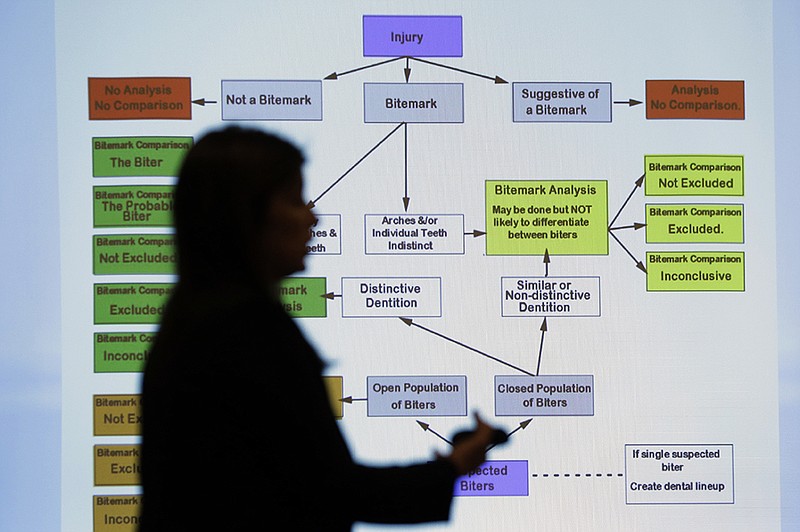AUSTIN-Texas moved to the brink Thursday of becoming the first state to formally call for a ban on bite mark evidence, which could influence judges across the U.S. and whether they will accept the disputed forensic science in courtrooms.
The Texas Forensic Science Commission signaled it would recommend a moratorium on using bite mark evidence pending more research after several members, who have been scrutinizing the practice for months, agreed to bring their skepticism before the full board.
The commission cannot outright ban bite mark evidence. But a state scientific agency recommending even a temporary halt to the use of bite mark evidence would be unprecedented, legal experts say, and cause prosecutors and judges across the country to take notice.
At least two dozen men convicted or charged with murder or rape based on bite marks have been exonerated nationwide since 2000. There is no scientific proof that teeth can be definitively matched to human skin, and critics say it is long overdue that the practice joins other discredited evidence such as bullet-lead analysis and microscopic hair analysis.
"It's too subjective. There is no criteria. As a result, I'm ready to face the absence of it in court, rather than have it be used," said Richard Alpert, a commission member who is also a prosecutor in Fort Worth.
A full vote by the commission is expected Friday.
Texas, which leads the nation in executions, carries a tough-on-crime reputation. But the state has actually been a leader nationally in reforms in recent years, said attorney Chris Fabricant of the New York-based Innocence Project. Texas led the nation again last year in exonerating wrongfully convicted or charged people.
Putting new scrutiny on bite marks has thrust the obscure Texas Forensic Science Commission into the national spotlight for the second time in recent years-but this time less controversially. In 2009, then-Gov. Rick Perry abruptly removed three people from the state board just 48 hours before commissioners were to consider a report that a faulty investigation led to a Texas man's execution.
A later ruling by then-Attorney General Greg Abbott, now the Texas governor, effectively ended in an inquiry into the evidence that convicted Cameron Todd Willingham, who was executed for the arson deaths of his three children.
Bite mark evidence supporters argue the practice has helped convict child killers and serial killer Ted Bundy. Commissioner Harvey Kessler said the agency could revisit supporting bite mark evidence under strict guidelines if better research comes back, but said that putting that research and
better criteria together is up to small and mostly ungoverned group of dentists who defend the practice.
Kessler said he could still imagine scenarios in which judges overlook the agency's rebuke of bite mark evidence, but defended the moratorium as done in the interest of justice.
Peter Bush, a University at Buffalo researcher and leading opponent of bite mark evidence, said other states would likely follow Texas' lead.
"The Texas position would potentially create a domino effect," said Bush, who did not attend Thursday's meeting. "Other states would follow their recommendations."

